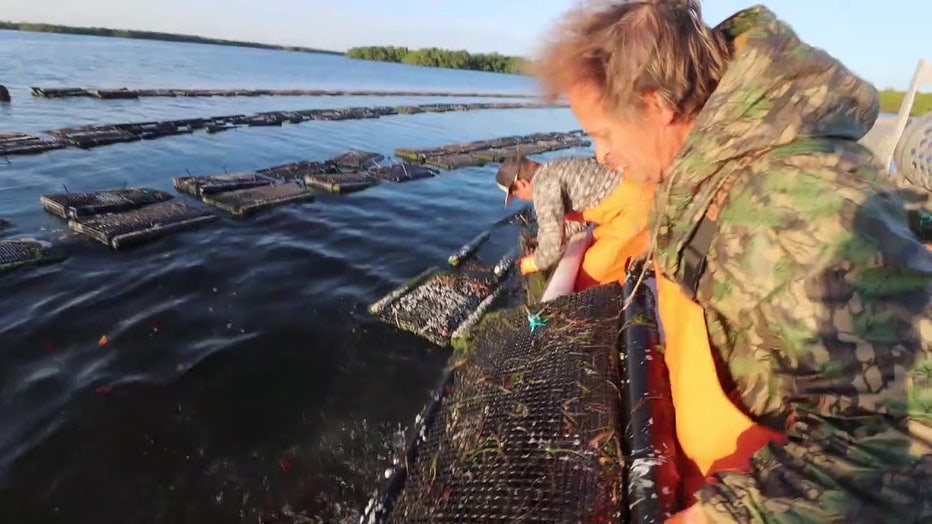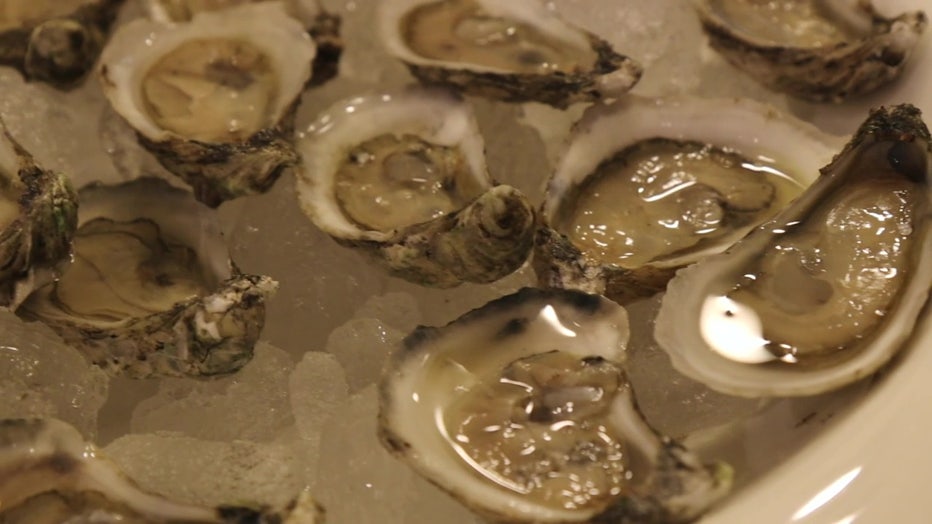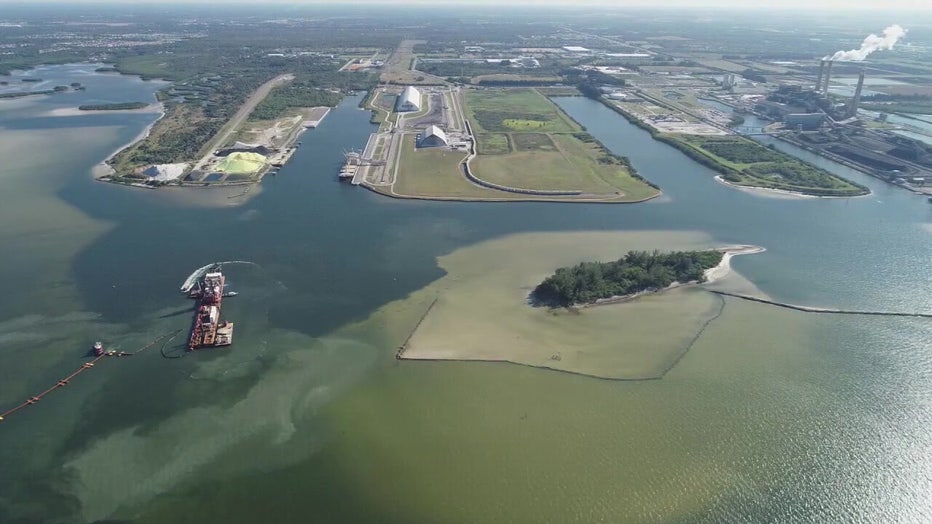St. Pete couple reviving Tampa Bay’s lost oyster industry

Push to bring back Bay Area oysters
Oyster beds in Tampa Bay used to be world-class, but the oysters declined when the water quality decreased, but now a St. Pete couple is trying to bring them back.
ST. PETERSBURG, Fla. - The Lost Coast Oyster Company grows and harvests oysters in Tampa Bay.
"People are excited about what we’re doing because it wasn’t thought to be possible," said co-owner Brian Rosegger. "They're reviving an industry many people thought was lost forever."
Rosegger says Tampa Bay has historically had a prolific oyster industry.
"If we’re talking to somebody that’s older, they’ll tell us how their grandfather used to go scrape oysters off the Gandy Bridge," he shared.
Rosegger is also a marine biologist. He says major dredging projects during the 50s and 60s have taken their toll on natural oyster beds in Tampa Bay.
"The areas that formally had oysters here in Tampa Bay probably aren’t producing due to the habitat loss," he explained.

University of South Florida historian Gary Mormino says oysters have a long history in Tampa Bay. Native Americans ate oysters here for thousands of years. Evidence during the early U.S. occupation of Florida suggests they tasted pretty good, too.
READ 70-year-old St. Pete smokehouse prides itself in preparing Florida’s oldest cuisine
"In 1824, a soldier at Ft. Brook, who wrote a diary, said, ‘The oysters I’ve had in Tampa Bay are the finest I’ve had in my life,’" he recalled.
Mormino says oysters were always plentiful around the bay.

"In St. Pete, the prized oyster grounds were Big Bayou and in Tampa, it was Rocky Point," he explained. "And when you eat a lot of oysters, you’re left with a lot of shells.
Mormino says crews would pave highways with them to get rid of them. But in the 1950s and 60s, water quality was abused and neglected in Tampa Bay. The oyster population was destroyed. It was, of all things, an article in the 1981 Sports Illustrated Swimsuit Issue that brought national attention to the issue. It declared the Tampa Bay estuary dead. Mormino says it was a surprise to the state's governor at the time.
READ The history of Cuban coffee: Cigar rollers on strike demanded café con leche upon return to work
"Bob Graham, when he heard this, nearly choked on his oyster because of the bad publicity," he commented.

Rosegger says oysters may never be as plentiful as they once were in the bay, but recent water quality improvement projects are providing hope for the future.
"Our ability to grow shellfish definitely demonstrates that we’re trending in the right direction," he said.
He's fighting to make the story of Tampa Bay oysters come full circle and keep their great history alive.

